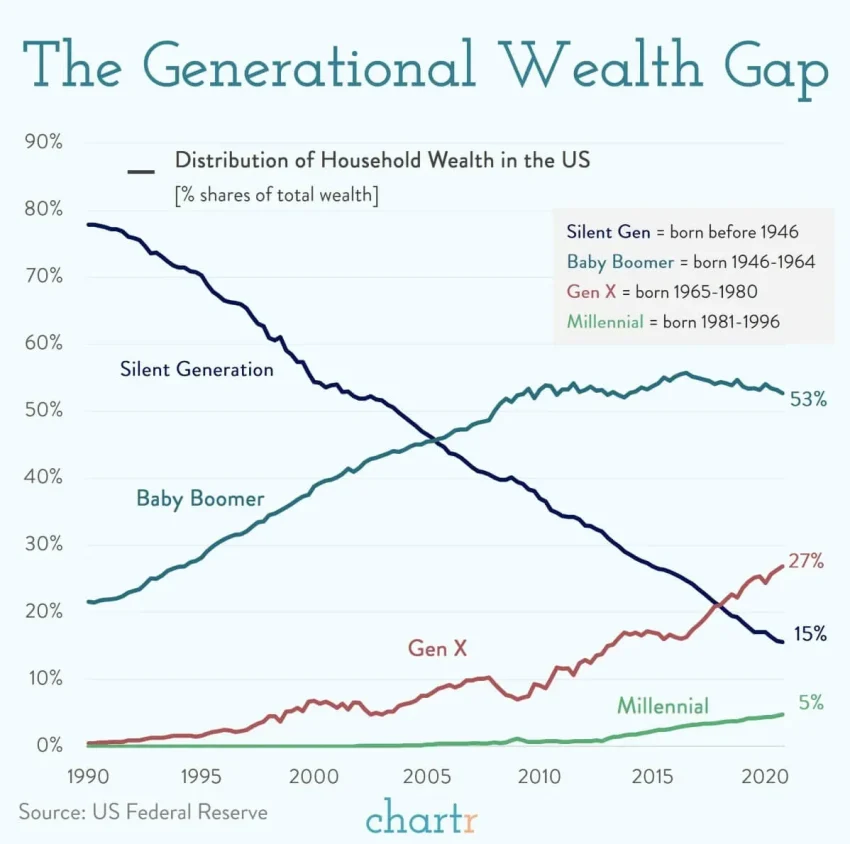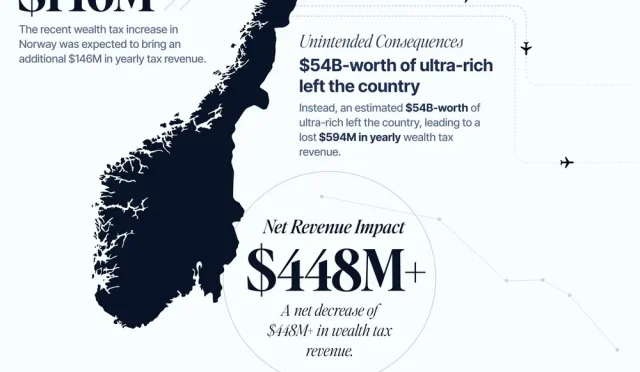Generational Wealth: A Black Family’s Struggle and Loss
Generational wealth is often seen as a cornerstone of the American dream, yet for many, especially Black Americans, the path to building and maintaining it has been fraught with obstacles. The historical loss of property, fueled by institutional racism and practices such as eminent domain, has significantly impacted Black generational wealth. A striking example can be seen in the story of the Houston family, whose dreams of homeownership were shattered when their land was taken for a school that was never built. Such forced seizures not only erased their family’s financial legacy but perpetuated the wealth gap in America, where Black families continue to hold a fraction of the wealth compared to their white counterparts. Understanding these historical injustices is crucial to recognizing the ongoing challenges surrounding Black family homeownership and wealth accumulation.
The concept of inherited financial stability, often referred to as familial or legacy wealth, is essential to personal and community prosperity. Unfortunately, this noble aspiration has been consistently undermined for many, particularly among African American families. The systemic forces that facilitate the erosion of wealth, such as discriminatory practices and socio-economic disparities, leave many in a cycle of poverty. The plight of families like the Houstons illustrates the broader issue of disinvestment in Black communities, which has led to significant setbacks in achieving true economic equity. By examining these themes, we can gain insights into the ongoing struggle for financial empowerment and justice.
The Legacy of Black Generational Wealth Loss
The story of the Houston family reflects a broader narrative regarding the loss of generational wealth within Black communities across America. Generational wealth, which can be defined as financial assets passed down from one generation to the next, often relies heavily on property ownership. Unfortunately, systemic barriers have historically impeded Black families from accumulating and maintaining such wealth. Events like the forced sale of their land symbolize a recurring theme where the promise of the American dream is unfulfilled for many Black families. Their sacrifices and hard work should have led to ownership and stability, yet instead, they were left with irretrievable loss.
As seen through the lens of the Houstons’ experience, the destruction of potential wealth has far-reaching consequences, affecting not only the immediate family but also future generations. The historical disenfranchisement of Black people in America has resulted in a substantial wealth gap, which is deeply rooted in centuries of exploitation and discrimination. This wealth gap hampers the ability of many Black families to inherit property and build lasting wealth, perpetuating a cycle of economic instability that can be traced back to events such as their forced relinquishment of land.
The Impact of Eminent Domain on Black Homeownership
Eminent domain, a legal principle that allows the government to seize private property for public use, has disproportionately affected Black families throughout American history. The forced sale of properties under the guise of public benefit often results in lost opportunities for Black homeownership, which is critically linked to wealth accumulation. The Houston family’s experience highlights how the government’s use of eminent domain led to the displacement of Black families, erasing their chances at generational wealth and undermining their long-term financial stability.
When the Houston family was coerced into selling their property for a school that was never built, it exemplified a pattern of exploitation. Black families have routinely trusted local governments to act in their best interests, only to find their sacrifices rewarded with broken promises. This misuse of eminent domain not only robbed the Houstons of their home but also deprived them of the chance to pass down wealth to their heirs, amplifying the existing wealth gap in America. Such cases serve as reminders of the historical loss of property that many Black families have suffered, reinforcing callous disregard for their rights and aspirations.
Even though property ownership is a cornerstone of creating wealth in America, Black families have faced consistent barriers that hinder their ability to attain and retain homeownership. Events like the Houston family’s displacement demonstrate the long-term implications of using eminent domain on communities already struggling with the ramifications of institutional racism. The failure to recognize and rectify these injustices perpetuates cycles of poverty that continue to impact Black households today.
Historical Context of Black Family Property Displacement
The history of property loss among Black families is deeply intertwined with systemic racism and economic inequality. In the case of the Houstons, their struggle represents a stark reminder of how Black families were often targeted for property seizures, leaving them vulnerable and without recourse. The systematic denial of access to homeownership, coupled with tactics like redlining, laid the groundwork for the wealth gap that persists today. As Black families tried to build stable environments, they were repeatedly met with obstacles that threatened their very existence.
During the post-World War II era, as many Black families sought better opportunities and settled in regions like Renton, they faced not only discrimination in housing but also threats of loss through government action. The illusion of financial progress through homeownership quickly faded as property rights were stripped away under eminent domain claims. As seen throughout the nation, similar stories reflect that Black families were often left with nothing but heartbreak and economic instability—a pattern repeated time and again in neighborhoods across America.
The Wealth Gap in America and Its Roots
The wealth gap in America remains a pressing issue that reflects the historical injustices faced by Black families. The disparities in generational wealth accumulation can be traced back to various discriminatory practices that have systematically disenfranchised Black Americans for generations. Reports indicate that Black households today hold a fraction of the wealth of their White counterparts, with homeownership being a crucial factor. The loss of property ownership, as exemplified by the Houston family, signifies lost opportunities to build wealth, which can be passed down to future generations.
The cumulative effects of historical injustices, such as the Houstons’ forced sale of their home, continue to reverberate through today’s economic landscape. Black families are disproportionately affected by factors that inhibit wealth accumulation, including lower inheritance rates, limited access to equitable financial services, and discriminatory lending practices. Understanding this wealth gap requires acknowledging its historical roots, and recognizing the struggles faced by families who have fought against losing their homes and their inheritance during times of social upheaval.
Preserving Black Heritage and Memory Through Advocacy
The narrative of the Houston family serves not only as a poignant reminder of past injustices but also as a rallying cry for advocacy and change. Their fight for recognition and restitution encapsulates the need for ongoing efforts to address the historical loss of property and its impact on Black communities. By keeping the memory of their struggles alive, advocates can bring attention to the systemic issues still facing Black families and work towards reparative strategies that honor their legacies.
John Houston’s determination to seek justice for his family’s lost generational wealth speaks volumes about the enduring spirit of resilience within Black communities. His personal journey from loss to advocacy demonstrates that while the past may be fraught with challenges, the future can also be shaped through collective action. By actively sharing their story, the Houston family not only preserves their heritage but also inspires others to confront the ongoing disparities affecting Black Americans today.
The Role of Community in Rebuilding Wealth
Rebuilding Black generational wealth requires not just individual action but a collective community effort. Strong community networks can provide support, resources, and pivotal connections that foster opportunities for homeownership and economic advancement. The story of the Houston family illustrates how community solidarity can become a powerful vehicle for change. As families come together to advocate for justice, they can create a united front to combat systemic barriers that have historically hindered their economic success.
Additionally, communities can establish programs aimed at education, financial literacy, and economic development, ultimately contributing to the rebuilding of wealth. The importance of grassroots initiatives cannot be overstated as they empower individuals with the tools necessary to navigate the complexities of homeownership and wealth-building. Collaborations between organizations, local governments, and community leaders can address historical inequalities and offer new pathways to success for future generations.
Legislative Changes for Future Generations
Recent legislative changes, inspired by stories like the Houstons’, signify a shift toward rectifying historical injustices. The introduction of laws that allow families to reclaim property lost through eminent domain attempts marks a crucial step in the fight for equity and justice. While these changes are not retroactive, they hold promise for future generations affected by similar circumstances. Advocating for legislation that addresses generational wealth loss can empower Black families to reclaim their rights and memories associated with their family homes.
Engagement with policymakers is vital to ensuring that the lessons from the Houston family’s experience translate into meaningful reforms. The recognition that property rights and generational wealth are interconnected can pave the way for more comprehensive policies aimed at combating disparities. Collective voices advocating for legislative progress can foster change that honors the profound legacy of families who have fought against unjust systems.
Educational Initiatives to Close the Wealth Gap
Education plays a crucial role in closing the wealth gap faced by Black families. By implementing educational initiatives that target financial literacy, homeownership rights, and wealth-building strategies, communities can better equip individuals to make informed decisions regarding property ownership. The importance of educating both children and adults about the economic system and their rights is vital to breaking the cycle of poverty. Empowerment through knowledge can help families understand how to navigate homeownership and investment opportunities more effectively.
Furthermore, fostering a culture of mentorship within the community can further bridge the knowledge gap regarding financial planning and property ownership. These educational initiatives can help cultivate future generations’ understanding of wealth creation and legacy-building, setting the groundwork for sustainable financial well-being. Improved access to educational resources can ensure that the lessons from the past are not only remembered but also serve as fuel for future prosperity.
A Call for Reparations and Justice
The fight for reparations and justice is intertwined with the stories of families like the Houstons, who have experienced the emotional and financial impacts of systemic inequities. Advocating for reparations involves recognizing the complexities of historical injustices that have stripped Black families of their rights and opportunities. Acknowledging these wrongs is a vital step in moving towards restitution and repairing the damage done over generations.
A robust reparations framework must involve collaboration between various sectors, including government, community organizations, and activists, to highlight the necessity for systemic changes. This call for reparations represents more than just financial compensation; it is about restoring dignity, promoting redress for past harms, and creating a more equitable future. By prioritizing these goals, advocacy efforts can foster a broader dialogue that emphasizes justice, accountability, and the long-overdue recognition of Black generational wealth rights.
Frequently Asked Questions
What is generational wealth and how is it impacted by the historical loss of property among Black Americans?
Generational wealth refers to the assets passed down from one generation to the next, providing financial security and opportunities. Historically, Black Americans have faced systemic barriers, including property seizures through eminent domain, leading to the loss of potential generational wealth. Events like these have significantly widened the wealth gap in America for Black families, depriving them of the ability to build and pass on wealth.
How does eminent domain contribute to the struggle for Black generational wealth?
Eminent domain allows the government to take private property for public use, often with inadequate compensation. For many Black families, including the Houstons, this has resulted in the loss of homes and land, which are crucial for building generational wealth. The impact of such practices has been disproportionately harmful, further exacerbating the wealth gap in America.
What role does Black family homeownership play in building generational wealth?
Black family homeownership is essential for building generational wealth as it allows families to accumulate equity over time. However, due to historical injustices like redlining and eminent domain, many Black families have been denied this opportunity, limiting their ability to build wealth that could benefit future generations.
What are the effects of the historical loss of property on the wealth gap in America?
The historical loss of property among Black Americans has led to a significant disparity in wealth accumulation compared to White families. Events such as the taking of land through eminent domain have deprived Black families of assets that could have been passed down, contributing to the ongoing wealth gap in America.
How can lessons from the Houston family’s loss inform efforts to build Black generational wealth today?
The Houston family’s experience underscores the need for legal protections against property seizures and the importance of awareness around property rights. By advocating for equitable policies and supporting Black homeownership initiatives, communities can work to rectify past injustices and build pathways toward generational wealth.
What initiatives are in place to help address Black generational wealth losses from historic property seizures?
Recent legislation, such as the Houston Eminent Domain Fairness Act, aims to provide remedies for families impacted by eminent domain. This initiative allows property owners whose land was taken through eminent domain the chance to repurchase their property if the originally intended project did not occur, providing a step towards rectifying historical losses and supporting Black generational wealth.
| Key Points |
|---|
| George Houston’s family lost their home in 1968 due to eminent domain. |
| Their father signed away their property, believing it would benefit the community, but a school was never built. |
| Eminent domain laws disproportionately affected Black families, hindering their chances to build generational wealth. |
| The Houston family’s property is now occupied by million-dollar homes, highlighting the loss of wealth. |
| The family has fought for restitution, resulting in the Houston Eminent Domain Fairness Act in Washington. |
| Despite legal advancements, the Houstons cannot reclaim their lost property or wealth. |
Summary
Generational wealth remains a crucial topic in discussions of fairness and equity, particularly for communities that have faced historical injustices. The story of George Houston and his family sheds light on the systemic barriers that have prevented many Black Americans from achieving financial security and passing down wealth through generations. The loss of their property not only impacted their immediate family but also highlights a broader narrative of lost opportunities for countless families affected by similar injustices. As society recognizes and addresses these disparities, it becomes essential to advocate for policies that support the creation and preservation of generational wealth for all, ensuring a more equitable future.
#GenerationalWealth #BlackFamilies #EconomicJustice #WealthInequality #FinancialEmpowerment








